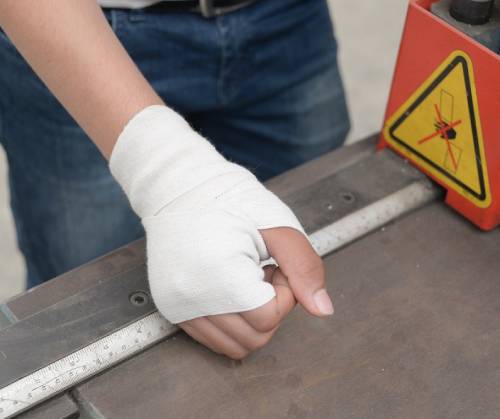Employees all over the U.S. are protected by workers' compensation benefits should they get sick or injured as a direct result of their job. To help them manage their illnesses and disabilities, the benefits will help them receive healthcare services and work toward recovery without worrying about the expenses.
Every state has its own unique workers' compensation laws and regulations. In this article, learn about how workers' compensation Maryland works.
Who Is Required To Have Workers' Compensation Maryland?

In the state of Maryland, all employers are required to provide workers' compensation insurance for their employees. This includes both private companies and public entities.
There are a few exceptions to this rule, but for the most part, all employers must provide this coverage.
In general, workers' compensation insurance will cover any employee who is injured while working. This includes injuries that occur on the job site as well as injuries that occur while the employee is performing work-related activities away from the work premises. If an employee is killed while working, their survivors may also be eligible for benefits.
If you are an employer in Maryland, it is important to make sure that you comply with the state's workers' compensation laws. Failure to provide coverage for your employees could result in significant penalties.
Are There Exemptions In Workers' Compensation Maryland Law?
There are a few exemptions to workers' compensation Maryland law.
For instance, agricultural workers are not covered by workers' compensation unless an employer's insurance policy specifically covers them. Other exemptions include certain types of federal employees, railroad workers, and longshoremen.
Who Oversees The Administration Of Workers' Compensation In Maryland?
In Maryland, the Workers' Compensation Commission (WCC) is responsible for administering workers' compensation laws. It’s an independent state agency responsible for adjudicating workers' compensation claims and providing educational materials and resources to employers and employees. The WCC also establishes workers' compensation insurance rates and regulates the insurance industry.
What Benefits Does Maryland Workers' Compensation Offer?
In Maryland, workers' compensation is a no-fault system, which means it does not matter who was at fault for an employee's accident. As long as the worker was injured while performing their job duties, they should be eligible for benefits.
Some of the benefits you may be entitled to include:
- Medical Benefits – A worker will be covered for all reasonable and necessary medical treatment related to a work injury. This can include hospitalization, surgery, prescription drugs, and rehabilitation.
- Wage Replacement – Employees who cannot work due to an injury may be eligible for wage replacement benefits. These benefits are typically two-thirds of an average weekly wage, up to a maximum amount.
- Death Benefits – If you are killed in a work-related accident, your surviving family members may be eligible for death benefits. These benefits can help with funeral and burial expenses and lost income.
If you have been injured at work, you should contact an experienced workers' compensation attorney to discuss your case. An attorney can help you navigate the workers' compensation system and ensure you receive the benefits you deserve.
How Much Does Workers' Compensation Insurance Cost In Maryland?
On average, workers' compensation rates in Maryland cost 24 cents for every $100 for low-risk employees. For employees in high-risk industries, the rates can amount to $13.89 for every $100 in payroll.
Despite these guides, some factors can influence the cost of workers' compensation insurance. This may include the company's payroll, claims history, and the various job classifications of the employees.
What Should An Employee Do If They Have A Workers' Compensation Claim?

If an employee has been injured at work, they may be wondering what they should do next. The first step is to tell their employer about the injury and ask for workers' compensation benefits.
The employer should have workers' compensation insurance to cover medical expenses and lost wages while they cannot work. If the employer does not have this insurance, the employee may be able to file a claim with the state workers' compensation board.
Once they have reported the injury to the employer, they will need to see a doctor to document the injuries. The worker must be sure to tell the doctor that the injury is work-related so they can properly document it.
After seeing a doctor, the employee must file a claim with the workers' compensation insurance company. This includes providing documentation of the injuries and sending the doctor's report. The insurance company will then review the claim and decide whether or not to approve it.
If the claim is approved, the worker will receive benefits. However, if it is denied, the employee can appeal the decision.
The Importance Of Workers' Compensation Maryland
With 2.7 million non-fatal workplace injuries recorded across the United States in 2020, businesses must protect their people from risks. Workers' compensation is essential to combating the damage from accidents on the job, which is why it is crucial to learn more about its requirements and guidelines, especially at the state level.
If you are an employee who applied for workers' compensation, Disability Help can provide you with vital information. Check out our guide on how long workers' compensation benefits last to get started!





